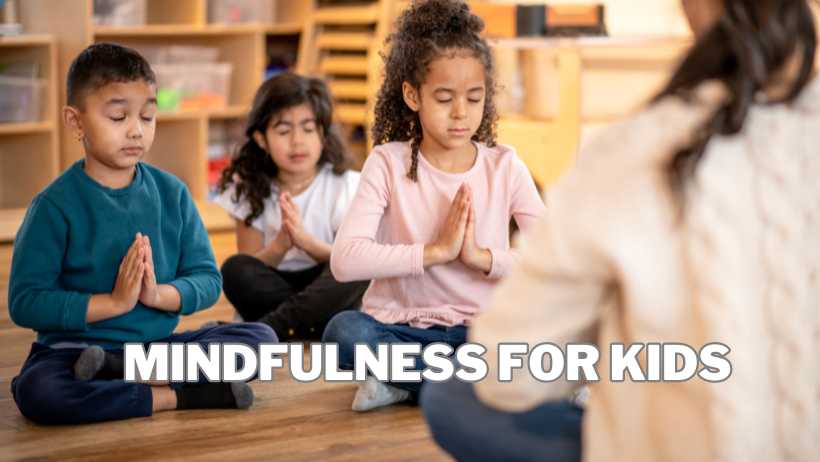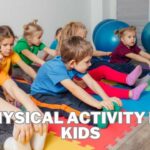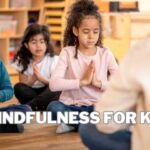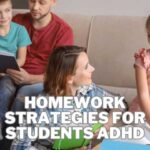
Discover how mindfulness can significantly benefit children and teens. Get tips and advice on promoting stress relief and overall wellness for your young ones.
In today’s fast-paced world, stress and anxiety have become prevalent issues among children and teenagers. With the pressure to excel academically, social challenges, and constant exposure to technology, many youngsters struggle to maintain balance and well-being.
Fortunately, research suggests mindfulness can significantly benefit children and teens by promoting stress relief and overall health and wellness. As parents, it is crucial to understand and support the development of mindfulness in our young ones. Here are a few suggestions for each age group.
Preschool Age (3-5 years)
Introducing mindfulness to preschoolers can lay the foundation for a lifetime of well-being. At this age, start with short and straightforward exercises that capture their attention. For example, a mindful breathing exercise where your child counts their breaths silently or listens to the sound of their breath can help them develop focus and relaxation skills. Incorporating mindfulness into daily routines, such as mindful eating or a mindful bedtime ritual, can also be effective.
School-Aged Children (6-12 years)
As children enter elementary school, their understanding of mindfulness can deepen. Encourage them to engage in activities that cultivate present-moment awareness. One such technique is the “body scan.” Have your child lie down and focus on each part of their body, starting from their toes, moving upwards to their head, paying attention to any sensations they feel. This exercise helps them develop body awareness and enhance their ability to tune into their physical and emotional needs.
Middle School Children (13-15 years)
Middle school can be challenging as teens navigate the complexities of adolescence. Mindfulness can provide valuable tools to help them cope with stress and the emotional rollercoaster. One helpful practice is mindful journaling. Encourage your child to write down their thoughts and feelings daily without judgment or criticism. This practice can foster self-reflection and emotional regulation and improve overall mental well-being.
High School Students (16-18 years)
For teenagers, mindfulness can help them manage academic pressure, peer relationships, and personal growth. Introduce your teen to mindful breathing exercises, such as the 4-7-8 technique, in which they inhale for four counts, hold their breath for seven counts, and exhale for eight counts. This technique activates the body’s relaxation response and reduces anxiety. Encourage your teen to designate a quiet space for practicing mindfulness, whether it’s a corner in their room or a peaceful area in the house.
Tips for Parents
- Be a role model: Children and teens learn best by observing their parents. Practice mindfulness yourself and let them see you engage in mindful activities.
- Provide guidance: Gently remind them to practice mindfulness, but do not force it. Encourage them to explore what works best for them.
- Keep it fun: Incorporate mindfulness into daily activities by making them enjoyable. For example, you can turn a mindful walking exercise into a nature scavenger hunt or practice mindful eating by savoring different flavors and textures.
- Be patient: Developing mindfulness skills takes time and practice. Encourage your child’s efforts, celebrate their progress, and offer support when they face challenges.
Benefits of Mindfulness for Kids and Teens
Promotes stress relief: Mindfulness exercises help children and teens learn to manage stress in a healthy way. By focusing on the present moment, they can reduce anxiety and improve their overall well-being.
Enhances overall health and wellness: Regular mindfulness practice has been shown to improve sleep, boost immune function, and support the healthy development of the brain and body. It promotes a balanced and positive approach to life.
Fosters self-care and well-being: Mindfulness teaches children and teens to prioritize self-care and recognize their own needs. It encourages them to cultivate a compassionate and accepting attitude towards themselves and others.
Research Findings on Mindfulness for Kids and Teens
Evidence of positive effects on mental well-being: Multiple studies have shown that mindfulness practices can improve mental health outcomes in children and teens, including reduced symptoms of anxiety and depression. It helps them develop resilience and emotional regulation skills.
Improved concentration and attention span: Mindfulness exercises that require focused attention improve cognitive skills such as concentration and attention span. This can benefit academic performance and everyday tasks.
Reduction in anxiety and depression symptoms: Mindfulness has been shown to reduce symptoms of anxiety and depression in children and teens. It provides them with tools to manage difficult emotions and navigate challenging situations.
Integrating Mindfulness Practices in Schools
Benefits for academic performance: Incorporating mindfulness practices into the school curriculum has been found to improve academic performance. It enhances attention and concentration, reduces stress levels, and improves emotional well-being, all of which contribute to better learning outcomes.
Creates a positive and supportive learning environment: Mindfulness practices create a positive and supportive classroom environment. It promotes empathy, kindness, and understanding among students, fostering a sense of community and inclusivity.
Teaches valuable life skills: Mindfulness practices teach children and teens valuable life skills, such as self-awareness, self-regulation, and empathy. These skills are important for healthy relationships, personal growth, and overall well-being.
Resources for Mindfulness for Kids and Teens
Books: Numerous books are available that provide mindfulness exercises and activities specifically designed for children and teens. These books offer guided practices and teach valuable concepts in an age-appropriate manner.
Apps: There are several mindfulness apps available that offer guided meditations, breathing exercises, and other mindfulness activities specially tailored for children and teens. These apps make it easy and accessible to practice mindfulness anywhere.
Online courses: Many online platforms offer mindfulness courses designed for children and teens. These courses provide structured and guided mindfulness practices along with educational resources and support.
Conclusion
Mindfulness is a lifelong practice that can empower children and teens with essential tools for navigating life’s challenges. By introducing age-appropriate mindfulness exercises and creating a supportive environment, parents can help their young ones develop resilience, emotional regulation, and self-care skills. Mindfulness promotes overall well-being, reduces stress, and enhances academic performance. It’s a gift that parents can give their children, setting them on a path towards a healthier and happier life.


















